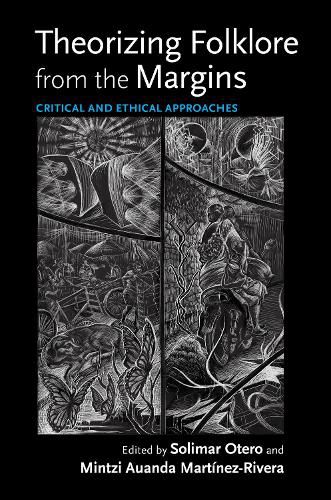Readings Newsletter
Become a Readings Member to make your shopping experience even easier.
Sign in or sign up for free!
You’re not far away from qualifying for FREE standard shipping within Australia
You’ve qualified for FREE standard shipping within Australia
The cart is loading…






The study of folklore has historically focused on the daily life and culture of regular people, such as artisans, storytellers, and craftspeople. But what can folklore reveal about strategies of belonging, survival, and reinvention in moments of crisis?
The experience of living in hostile conditions for cultural, social, political, or economic reasons has redefined communities in crisis. The curated works in Theorizing Folklore from the Margins offer clear and feasible suggestions for how to ethically engage in the study of folklore with marginalized populations. By focusing on issues of critical race and ethnic studies, decolonial and antioppressive methodologies, and gender and sexuality studies, contributors employ a wide variety of disciplines and theoretical approaches. In doing so, they reflect the transdisciplinary possibilities of Folklore studies.
By bridging the gap between theory and practice, Theorizing Folklore from the Margins confirms that engaging with oppressed communities is not only relevant, but necessary.
$9.00 standard shipping within Australia
FREE standard shipping within Australia for orders over $100.00
Express & International shipping calculated at checkout
The study of folklore has historically focused on the daily life and culture of regular people, such as artisans, storytellers, and craftspeople. But what can folklore reveal about strategies of belonging, survival, and reinvention in moments of crisis?
The experience of living in hostile conditions for cultural, social, political, or economic reasons has redefined communities in crisis. The curated works in Theorizing Folklore from the Margins offer clear and feasible suggestions for how to ethically engage in the study of folklore with marginalized populations. By focusing on issues of critical race and ethnic studies, decolonial and antioppressive methodologies, and gender and sexuality studies, contributors employ a wide variety of disciplines and theoretical approaches. In doing so, they reflect the transdisciplinary possibilities of Folklore studies.
By bridging the gap between theory and practice, Theorizing Folklore from the Margins confirms that engaging with oppressed communities is not only relevant, but necessary.